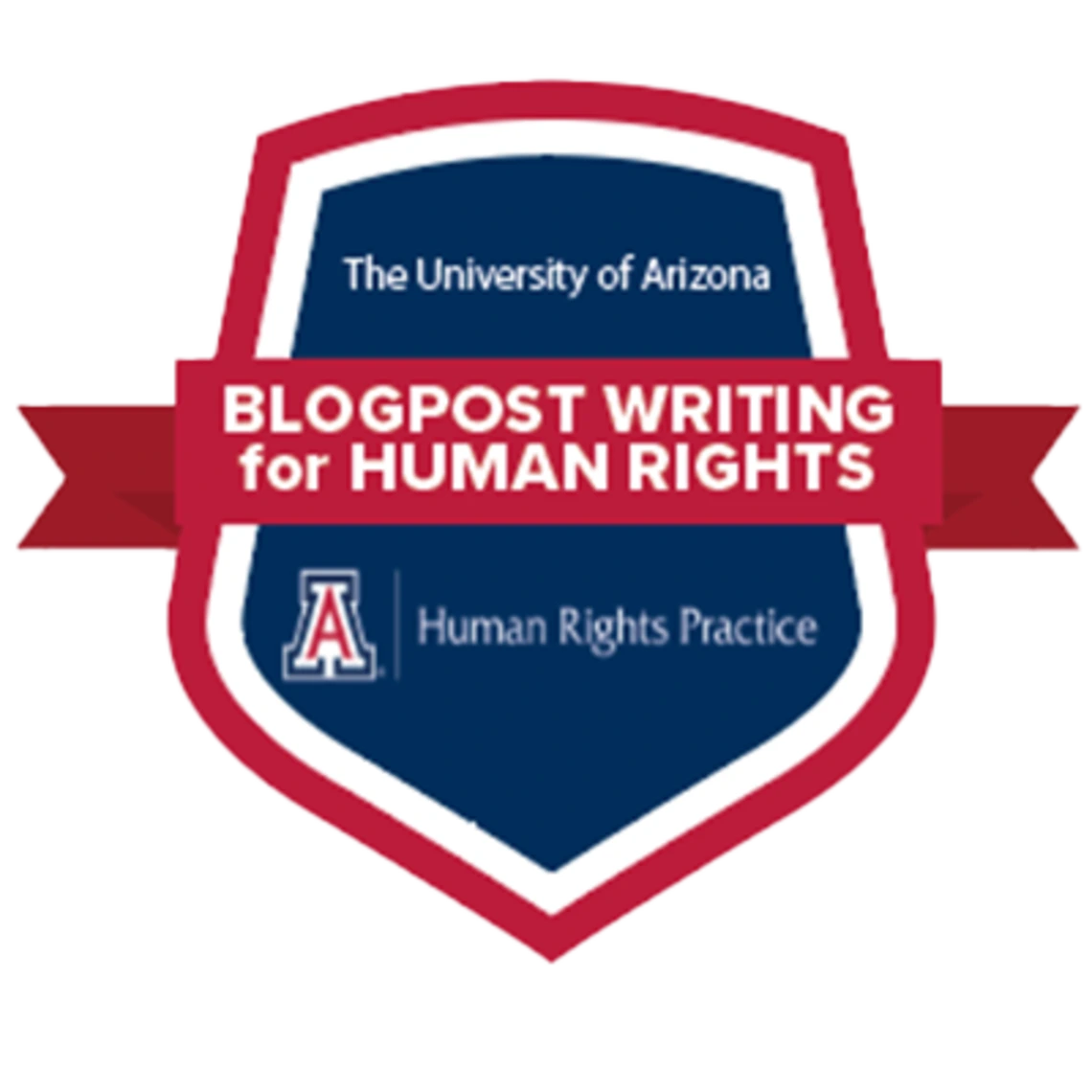Micro-credential digital badges available to HRTS students

The Human Rights Practice Program has introduced two new micro-credential badges: "Community Engagement for Human Rights" and "Cross-Cultural Interaction for Human Rights." These badges reflect professional skills developed by students in the course of their schoolwork and can be shared via LinkedIn and in other settings.
Human Rights Practice has now introduced six micro-credential digital badges that can be earned through active participation in selected courses and other activities sponsored by the program. These are the first to be offered within the College of Social and Behavioral Sciences. To learn more about micro-credential digital badges, see the excerpts below from the University of Arizona Registrar. The badges are:
Blogpost Writing for Human Rights
Cross Cultural Interaction for Human Rights
International Cooperation for Human Rights
Media Advocacy for Human Rights
Community Engagement for Human Rights
Community-Based Research for Human Rights
From the Registrar: Micro-Credentials and Digital Badges
What is a Micro-Credential?
A micro-credential is a small program in a focused area of study. When completed, micro-credentials provide a way to demonstrate acquisition and competence of specific skills, knowledge or vocational training to meet employers’ workforce needs. They can function within existing degree programs or as non-credit programs. Those that bear credit are typically 6 - 12 credits, which is fewer credits than degrees and certificates. When a student fulfills the requirements for a micro-credential, they will receive an electronic badge that can be shared with employers.
Benefits of earning Micro-Credentials
Learners and professionals can distinguish themselves by achieving a proficiency in skills that enhances their knowledge and marketability in the workplace. Micro-credentials can be “stacked” or combined with credentials from other sources allowing recipients to build their micro-credentials into larger, more recognizable credentials. For example, robotics and machine learning micro-credentials could be stackable into a larger Artificial Intelligence credential. Micro-credentials can be offered online, on-campus, or via a hybrid of both.
What is a Digital Badge?
At the successful completion of a micro-credential program, learners are awarded a digital badge. Digital badges are artifacts, much like a diploma, of the skills mastered after completing a micro-credential program. Open badges contain metadata about the program’s requirements and learning objectives. They are independently verifiable and portable, thus empowering learners to use and share as they see fit.
How does a Micro-Credential differ from a Certificate?
Micro-credentials differ from traditional degrees and certificates in that they are generally offered in shorter or more flexible timespans and tend to be more narrowly focused. Micro-credentials provide a way to demonstrate acquisition and competence of specific skills, knowledge or vocational training to meet employers’ workforce needs. They can function within existing degree programs or as a part of a certificate. Certificates typically have a minimum number of credits, and are smaller than major programs of study. Completed certificates are typically recorded on academic records and displayed on traditional transcripts.

